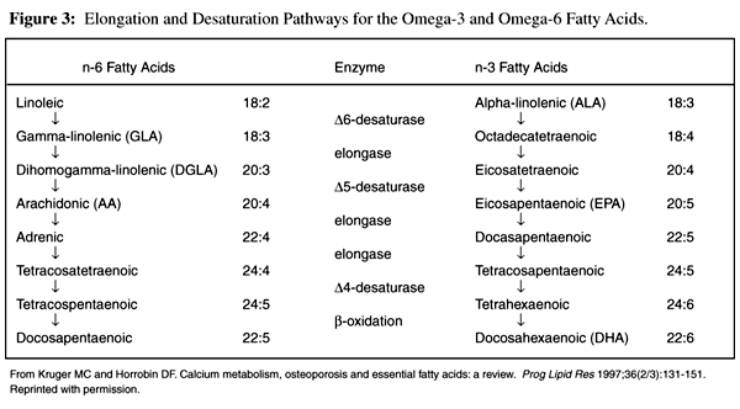Let’s Talk Supplements: Part II
In the last year there has been a disappointing series of nutritional studies published in the Journal of the American Medical Association. JAMA was rabidly opposed to supplementation until 2002, when they finally published an excellent article that proposed that taking supplements could reduce the risk of chronic disease. [1] That article was right on the money. This recent group of articles challenges those findings, but you will soon find that they were all seriously flawed. Let’s review these clinical trials, and consider how asking the wrong question can yield the wrong answers, and how that process generates negative bias against supplementation. The first study we will discuss is the:
Physicians’ Health Study II
The first 2 JAMA papers we will review [2, 3] involve the results from the Physicians’ Health Study trial (PHS II). Researchers studied 14,641 male physicians in the United States, aged 50 years or older. They divided them into 4 groups, and gave most of them a placebo, while only 3,656 received both the 400 IU of vitamin E every other day and 500 mg of vitamin C daily. They tracked this group for 8 years. This trial generated 2 separate reports.
The Heart Disease Report
The first paper [2] concluded that vitamin C and E supplementation did not reduce the risk of major cardiovascular events. However, their selection of candidates was very seriously flawed:
- The median age of participants was 64.3 years old
- 42% already had pre-existing high blood pressure
- 6% already had pre-existing heart disease
- 6% already had pre-existing diabetes
- All the participants already had 3 or more multiple risk factors for developing heart disease (including advanced age, history of smoking, high blood pressure, uncontrolled cholesterol levels, and high homocysteine levels)
- All these synthetic vitamins were produced by BASF, the “Chemical Company”
The Cancer Report
The second (cancer) paper [3] used this same flawed cohort to maintain that vitamin C and E supplementation also did not reduce the risk of prostate, or other forms of cancer. The weak points in this study include:
- 9% already had pre-existing cancers
- 44% were past or current smokers
- All of them were given synthetic supplements
It’s embarrassing to think how much time and money was wasted on this flawed study. Why study 64 year olds, many of whom already have the disease under review? Why give them synthetic vitamins? Why give them Vitamin E every other day? All these 2 studies actually demonstrated is that single nutrients are not effective as experimental drugs for preventing disease in aged individuals who almost, or already have the disease they hope to prevent.
The second large trial we will review is:
The Antioxidant and Folic Acid Heart Study
This study was actually one of five “legs” of a much larger clinical trial called the Women’s Health Initiative. The overall study was designed to see whether hormone replacement therapy (HMT), antioxidants, or B vitamins could reduce heart disease or cancer incidence. You may recall that the hormone trial was discontinued in 2002 when it was revealed that HMT had actually increased breast cancer rates by 26%, and heart attack rates by 29%. [9]
Like the PHS II study, this trial led to the publication of 2 different papers [4, 5]. In this trial, researchers gave folic acid, vitamin B6, and vitamin B12 to 5442 female health professionals, aged 42 years or older, over a 7-year period. Interestingly, the group receiving the B vitamins lowered their homocysteine levels by 18%, compared with the placebo group.
The Heart Disease Report
The first published paper reported that taking the 3 B vitamins did not reduce the risk of major cardiovascular events. [4] Although the JAMA paper makes that conclusion, the principal author, Dr. Marian Neuhouser made a rather different statement in a Medscape interview recently [10], when she said that there was “a slightly decreased risk for heart attack (MI) in those who took stress multivitamins — the ones that have high doses of B vitamins, vitamin C, zinc, and selenium — but because there were so few cases in this group, and because there were only 64 MIs among all these women, it’s a little bit hard to draw a firm conclusion, so we didn’t want to draw particular attention to this.” Unfortunately, the rest of the participants only received 3 of the eight B vitamins.
The problems with this trial were:
- The median age of participants was 64 years old
- All the participants selected were “high risk”, already having pre-existing cardiovascular disease (CVD) or at least 3 or more major risk factors for CVD. If you were healthy, you could not participate in this trial.
The Cancer Report
The second paper [5] used the same flawed cohort to do a statistical analysis for cancer incidence.
The weak points in this study include:
- No statistics were reported for pre-existing cancers
- This paper does not mention the other “leg” that received antioxidants, or the sub-group who took the “stress vitamins” mentioned in the Medscape interview. [10]
Again, we are being told that supplements do not prevent heart disease or cancer, when in fact, what they actually explored was the response of older, sick individuals to taking 3 of the eight B vitamins. That’s like using a “stacked deck” to prove you can’t win at cards. I refer to their fallacious thinking as the search for the “Silver Bullet”.
The major fault with all these reports is that they try to treat isolated nutrients as though they were experimental drugs
It’s not hard to understand why they think like this. Many of these researchers have a background in running clinical drug trials. As an example: Big Drug Company has just developed an experimental drug to manage heart arrhythmia. To test it, they gather a “cohort” of 200-500 individuals with pre-existing heart arrhythmia, and then give half of them the new drug, and the other half receive placebo. However, the drug model does not work well with nutrients.
Testing people who already have heart disease, to see if a few B vitamins can extinguish it, is simply ridiculous!
All the long-term trials, as well as the NHANES database [11] suggest that it is prolonged nutrient deficiencies of these vitamins that contributes to the onset of heart disease!
All the retrospective lifestyle studies of the last 40 years have shown a direct relationship between diet and disease. [11-13] The newest study, just published in the Circulation journal (2-18-09), reviewed 74,886 files from the Nurses’ Health Study, and found that the lowest incidence of heart disease and stroke was in women who’s diets most closely resembled the traditional Mediterranean diet.
That diet contains minimally processed, mostly plant-based foods, with an abundance — not just in terms of quantity, but also in terms of variety — of different plant foods and fish. The author stated: “Compared with the typical US diet, the Mediterranean-type diet requires a shift toward a more plant-based meal, which means eating less meat and getting more of the day’s protein from plant sources, such as beans and nuts”. [14]
Since the discovery of penicillin by Fleming in 1928, science has succumbed to the siren call of the “silver bullet” approach to disease. A large chunk of the $29 billion budget of the National Institute of Health (the principal sponsor for American research) is devoted to funding single-substance or intervention studies. [15]
About Vitamins
Probably the most straightforward and elegant website that explains the need for vitamins is the Kids Health site. [16] Although it doesn’t review all of the antioxidants, such as the carotenoids or flavonoids, it does simplify and clarify the relationship between vitamins and our health. More researchers should visit this site.
REFERENCES:
1. Vitamins for Chronic Disease Prevention in Adults: Clinical Applications
JAMA 2002 (Jun 19); 287 (23): 3127–3129
http://www.chiro.org/nutrition/ABSTRACTS/Vitamins_for_Chronic_Disease_Prevention.shtml
The Physicians’ Health Study II
(14,641 male physicians in the United States initially aged 50 years or older)
— 1307 men (8.9%) with a prior history of cancer
— 754 men (5.1%) with prevalent cardiovascular disease
— Mean Patient Age: 64.3 years
— 42% had a history of hypertension
— 44% were past or current smokers
— 6% had diabetes
2. Vitamins E and C in the prevention of cardiovascular disease in men: the Physicians’ Health Study II randomized controlled trial
JAMA 2008 (Nov 12); 300 (18): 2123-2133
http://www.ncbi.nlm.nih.gov/pubmed/18997197
3. Vitamins E and C in the prevention of prostate and total cancer in men: the Physicians’ Health Study II randomized controlled trial
JAMA 2009 (Jan 7); 301 (1): 52-62
http://www.ncbi.nlm.nih.gov/pubmed/19066368?
Antioxidant and Folic Acid Cardiovascular Study
(5442 US female health professionals aged 42 years or older, with preexisting cardiovascular disease)
4. Effect of folic acid and B vitamins on risk of cardiovascular events and total mortality among women at high risk for cardiovascular disease: a randomized trial
JAMA 2008 (May 7); 299 (17): 2027-2036
http://www.ncbi.nlm.nih.gov/pubmed/18460663
5. Effect of combined folic acid, vitamin B6, and vitamin B12 on cancer risk in women: a randomized trial
JAMA 2008 (Nov 5); 300 (17): 2012-2021
http://www.ncbi.nlm.nih.gov/pubmed/18984888
Women’s Health Initiative
161,808 participants from the Women’s Health Initiative clinical trials
— Was actually 3 overlapping trials of hormone therapy, dietary modification, and calcium and vitamin D supplements, and an observational study (N = 93,676).
— 41.5% of the participants used multivitamins
— data were collected on multivitamin use at baseline and follow-up
6. Multivitamin use and risk of cancer and cardiovascular disease in the Women’s Health Initiative cohorts
Arch Intern Med 2009 (Feb 9); 169 (3): 294-304
http://www.ncbi.nlm.nih.gov/pubmed/19204221
7. Physicians’ Health Study II: A Review
Medscape Family Medicine; 11-24-2008
http://www.medscape.com/viewarticle/583792?sssdmh=dm1.424263&src=journalnl
8. Women’s Antioxidant and Folic Acid Cardiovascular Study (WAFACS- Presented at AHA 2006)
Medscape Family Medicine; 12-12-2006
http://www.medscape.com/viewarticle/548663
9. Women’s Health Initiative study on HRT stopped
Yale/New Haven Hospital Review; 9-24-2002
http://www.ynhh.org/healthlink/womens/womens_9_02.html
10. Multivitamin Use: No Effect on Cancers or CVD in Women
Medscape’s Heartwire; 2-10-2009
http://www.medscape.com/viewarticle/588127
11. National Health and Nutrition Examination Survey (NHANES)
http://www.cdc.gov/nchs/nhanes.htm
12. Framingham Heart Study Website
13. http://www.framinghamheartstudy.org/
13. The Nurses’ Health Study
http://www.channing.harvard.edu/nhs/
14. Mediterranean Diet Reduces Risk of Heart Attack and Stroke
Medscape Medical News; 2-18-2008
http://www.medscape.com/viewarticle/588395?src=mpnews&spon=34&uac=49392HG
15. The NIH Yearly Budget
National Institutes of Health website
http://www.nih.gov/about/budget.htm
16. Vitamins at Kids Health
http://kidshealth.org/kid/stay_healthy/food/vitamin.html



Leave A Comment